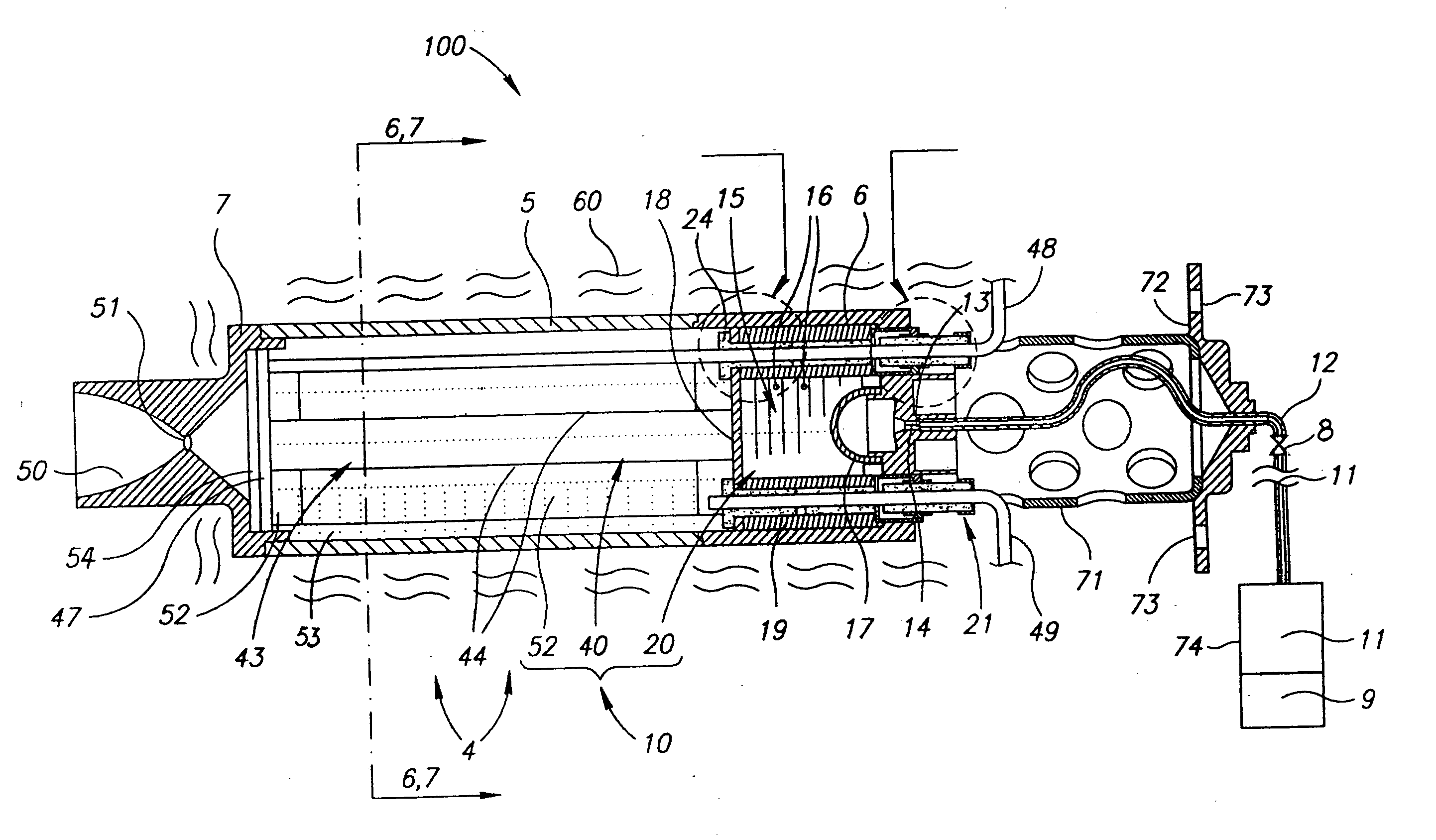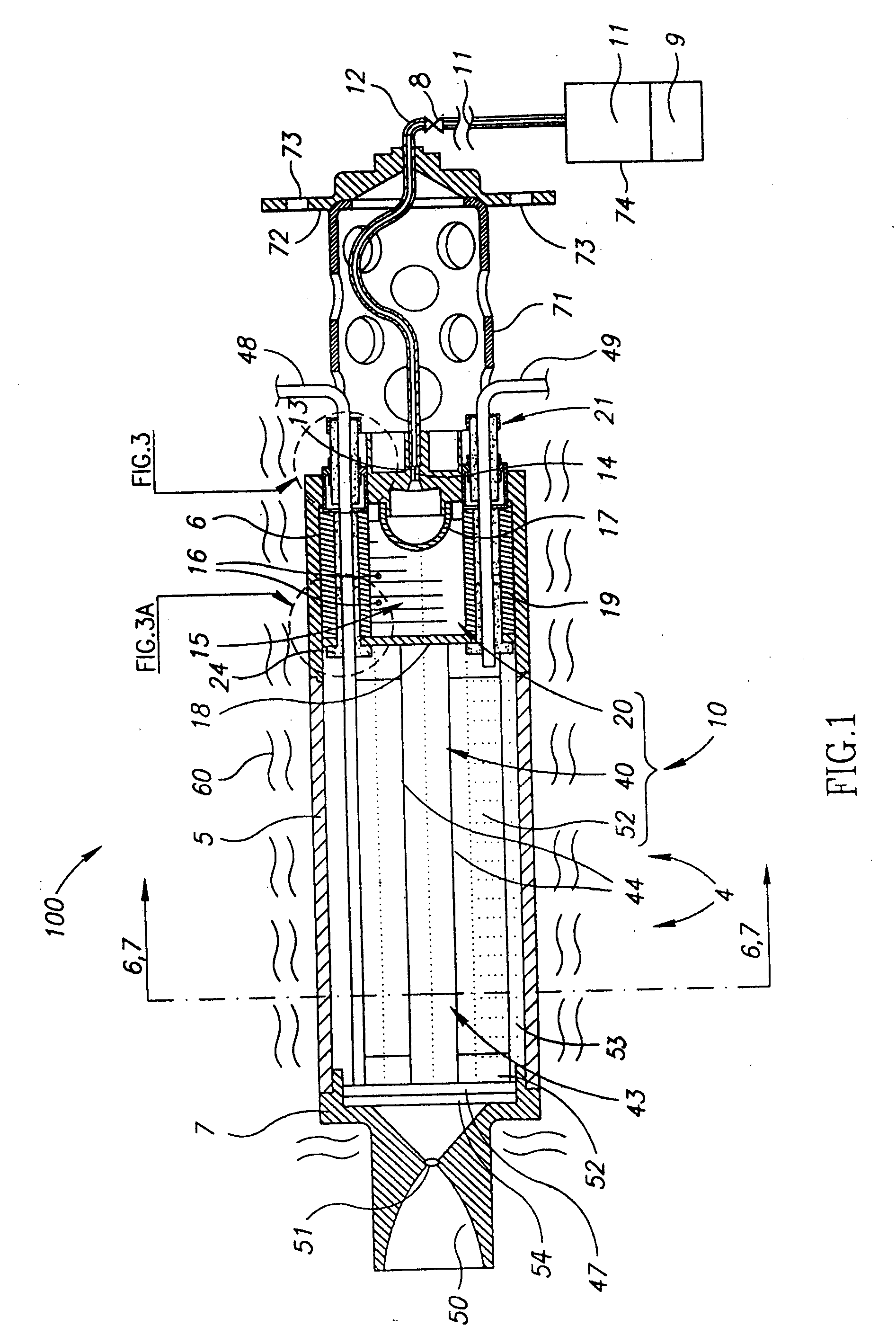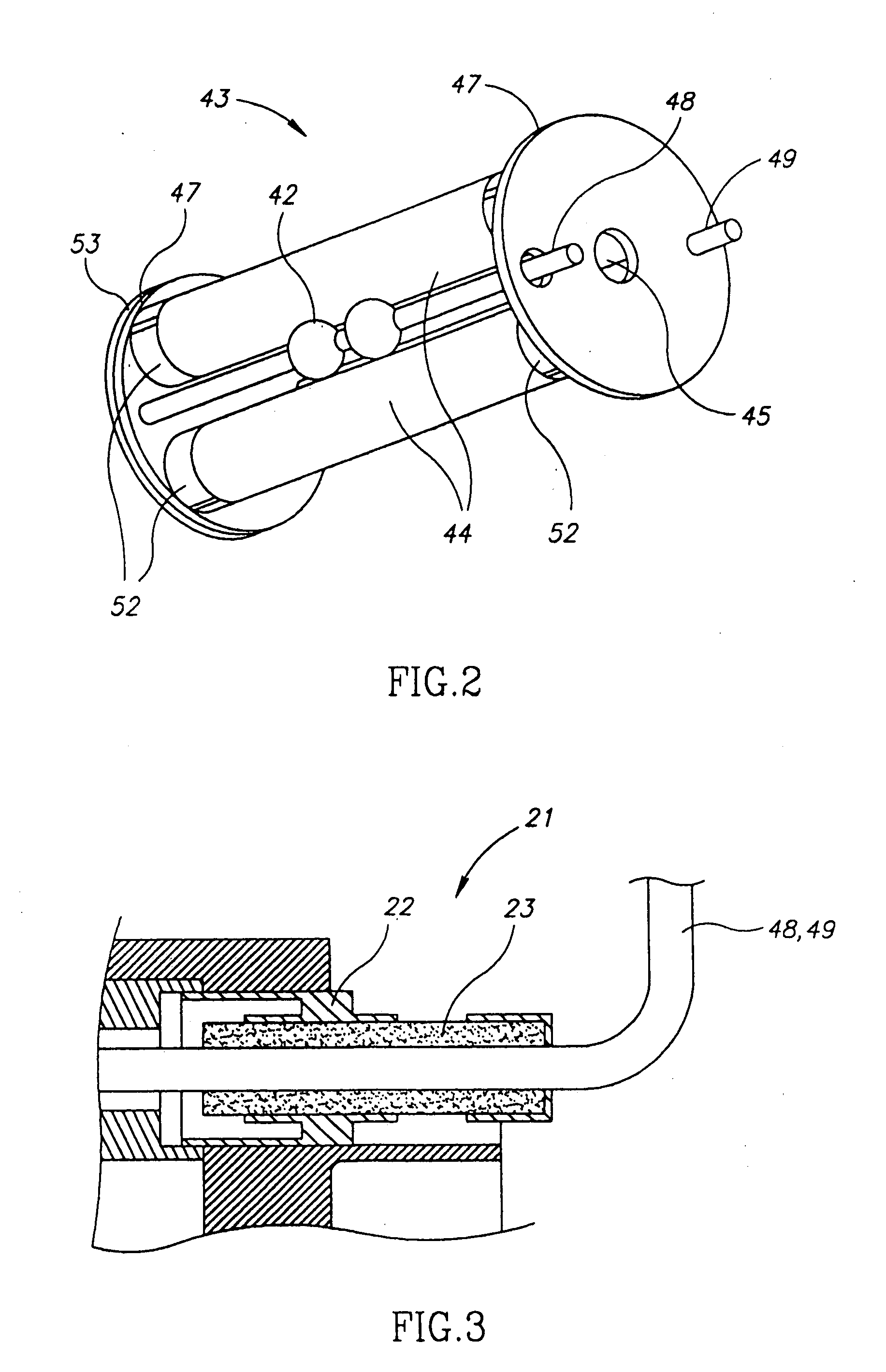Thruster with electro-thermal thrust augmentation
a technology of electro-thermal thruster and thruster, which is applied in the field of thruster augmentation of liquid propellant rocket thrusters, can solve the problems of limiting the useful operational life of an ev, ev cannot be controlled or maneuvered, and severe weight and volume limitations of an ev, so as to improve the specific impulse (isp) of the ev's thruster, simplify the thruster design, and improve the resistance to hydrazine products
- Summary
- Abstract
- Description
- Claims
- Application Information
AI Technical Summary
Benefits of technology
Problems solved by technology
Method used
Image
Examples
second embodiment
[0060] In FIGS. 2B and 2C there is shown the heating section 40. A first and a second U-shaped electric resistor, respectively resistor 81 and resistor 82, have each two straight longitudinal parallel arm portions and a base portion. Both U-shaped resistors, 81 and 82, are disposed with their arm portions in parallel, and with their respective base perpendicularly adjacent to each other, downstream near the side of the discharge plug 7, which is indicated in FIG. 1. The arm portion of each U-shaped resistor, 81 and 82, is covered by a coaxial concentric external tube 83. It is shown in FIG. 2C that longitudinal fins 87 accommodated inside each external tube 83 firmly support a respective arm portion of each U-shaped resistor, 81 and 82.
[0061] If desired, although not shown in the Figs., the first and second U-shaped resistors 81 and 82 may be of identical shape and dimensions, but disposed with their base portion side-by-side in parallel, instead of in cruciform disposition, as show...
fourth embodiment
[0071] In each one of the first, third, and fourth embodiment of the heating module 43, voids in the heating section 40 are filled with the catalyst 15, such as the pellets mixture 46, as indicated in FIGS. 6 and 7. The enhanced heat transfer properties of the additive serve to improve the heat exchange process resulting in higher gas temperature.
[0072] Ceramic rods 350, shown in FIG. 7, which duct the flow toward the center and along the axis of the heating section 40, are attached to sleeve 5 by means of a welded toggle, not shown in the Figs. In the first embodiments depicted in FIGS. 2A and 7, two electrically insulating holders 47, shown only in FIG. 2A, retain together resistors 44 and 244. Each insulating holder 47 has at least one aperture 45 accommodated to permit the flow of the hot gasses therethrough. In all of the shown configurations, screen 54 is attached to holder 47, at least adjacent discharge plug 7, to prevent spilling of the pellets mixture 46 through aperture 4...
PUM
| Property | Measurement | Unit |
|---|---|---|
| Time | aaaaa | aaaaa |
| Pressure | aaaaa | aaaaa |
| Power | aaaaa | aaaaa |
Abstract
Description
Claims
Application Information
 Login to View More
Login to View More - R&D
- Intellectual Property
- Life Sciences
- Materials
- Tech Scout
- Unparalleled Data Quality
- Higher Quality Content
- 60% Fewer Hallucinations
Browse by: Latest US Patents, China's latest patents, Technical Efficacy Thesaurus, Application Domain, Technology Topic, Popular Technical Reports.
© 2025 PatSnap. All rights reserved.Legal|Privacy policy|Modern Slavery Act Transparency Statement|Sitemap|About US| Contact US: help@patsnap.com



